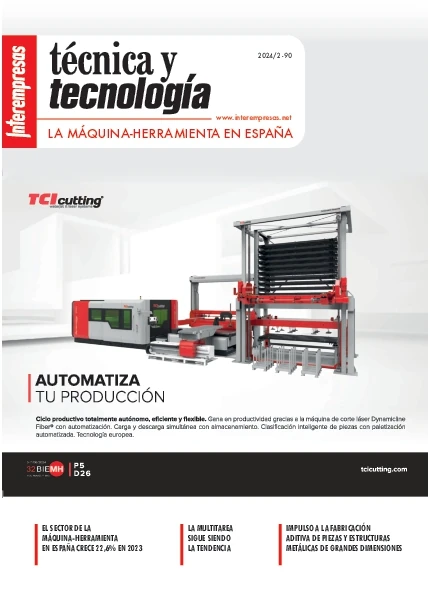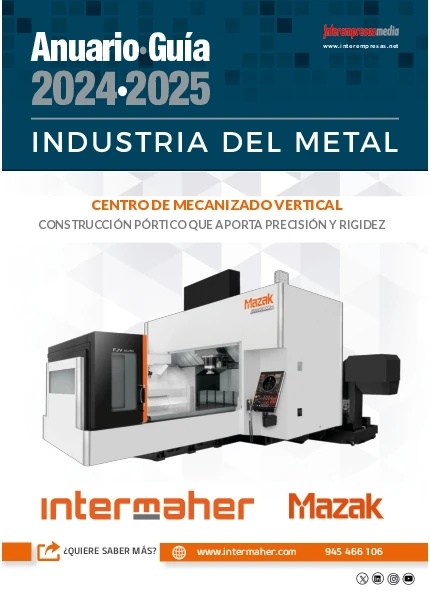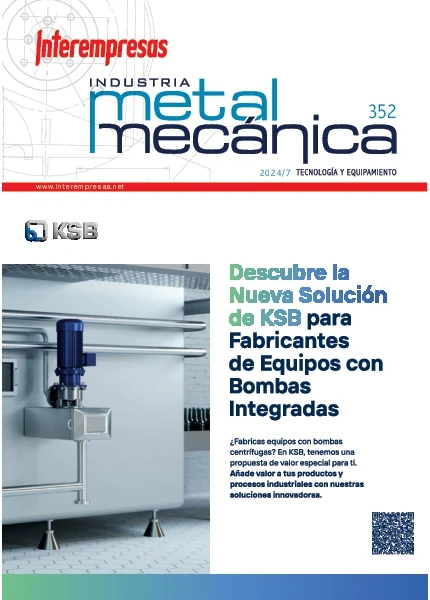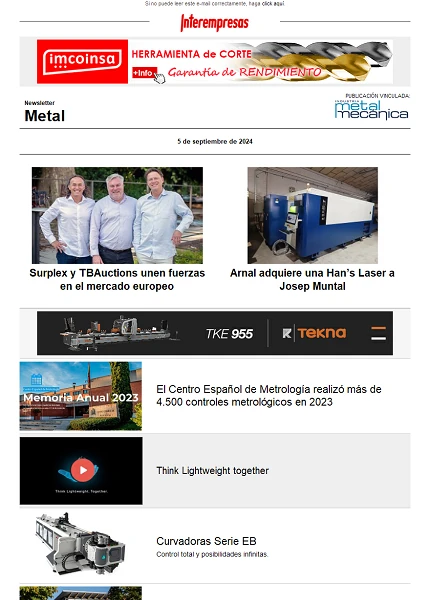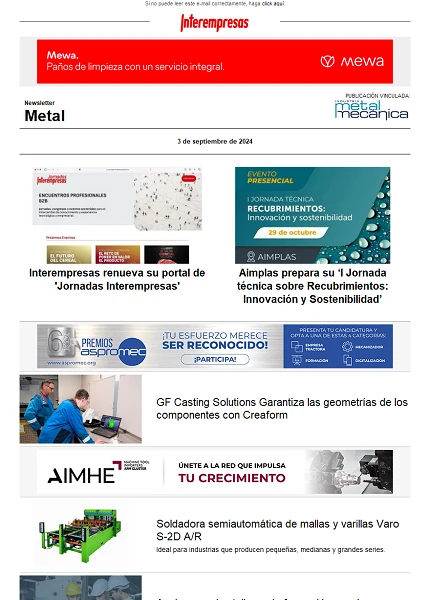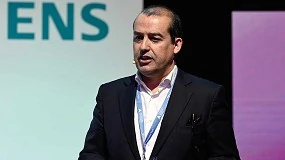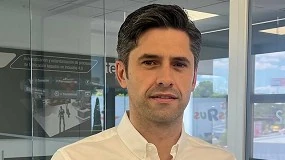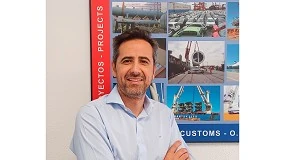Interview to Xavier Martos, general director of Beckhoff Automation
A question of rigour. It exists nowadays still some industrial process without programmable robots?
If we trace us back to the history, the first PLC was developed in the years 60 by Dick Morley like answer to the need of the industry to look for in the new electronic technologies a more efficient solution to replace the systems of control based in electrical circuits with relays, switches and other commonly used components for the control of the systems of logical combinacional. Nowadays it is difficult to find some type of process where the PLCs do not have his fit.
The cost, the efficiency and the flexibility are indispensable to compete in the industrial world, and all this does that the PLCs apply in any type of industry and application.

For Xavier Martos, the most recent improvements attained in the PLCs, by means of the adaptation to systems of information, no only have allowed to control machines or processes, but also access to data so much of trazabilidad of product as of personnel.
From the first models, developed in the industry automotriz, these devices have evolved a lot. Which are the main improvements that, in his opinion, have incorporated?
Think that one of the most important improvements at present in what we designate PLCs is the communication or the adaptation to systems of information.
This has allowed us no only control machines or processes, increase speed of production or reduce the ratio of failures, but can access to data so much of trazabilidad of product as of personnel. All this information has allowed that the companies can be more efficient in his productive processes.
How it values a PLC versus the PAC?
The difference between a term and the another is applicable mainly according to the type of application and the characteristics of process. An application of control of a machine would do always reference to a PLC whereas a system of control of a plant of production with the variants that this involves, would do more reference to a PAC.
The manufacturers of hardware designate PACs to his manufactured that fulfil with a series of specific functionalities, although they exist so many similarities between them like differences. The difference between the utilisation of a PLC and a PAC really depends of the process to control.
The PACs and the PLCs possess quite a lot of things in common to level of structure, although in the PAC establish some standards like greater functionality, concrete tools that fulfil with different normative, open architectures, flexible and expandable with interfaces no only of hardware but also of software for communication with databases of all type, etc.
The PAC combines eficientemente the reliability of control of an automaton (PLC) beside the flexibility of monitoring and calculation of a PC.
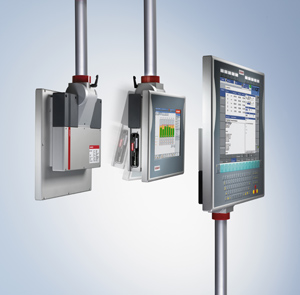
At present, which are the sectors where have more presence and that more have evolved thanks to them?
Really the sector of the car was the one who launched the application of electronic systems to substitute the logic of relays wired up and that went in particular General Motors by the years 60. Of this request appeared the first PLC of the market of the mark Modicon and from this moment, this sector was one of the first where the PLCs began to use of massive form. Another sector where more have incidido the PLCs has been in the one of machine-tool where the manufacturers of this type of machinery have employed them during a lot of years splitting of the PLC until reaching the technology of the CNC in the actuality.
Which paper will play in this expansion the standardisation of the industrial networks? What contribute?
The main aim of the industrial networks is the one to provide an exchange of information between installed devices of remote form. It is evident that the user looks for the type of network that can offer him this information of the fastest way.
By means of the use of the industrial networks achieve to increase the provision of the system, add more elements without need of reprogramarlos, reduce the wired up, increase the escalabilidad and reduce the times of unemployment when allowing us realise all series of diagnostics of the installed devices.
Therefore, his paper is of extreme importance. It is thus that Beckhoff developed EtherCAT, the industrial network faster of the market that allows us update 1.000 entrances/gone out in so only 30 microseconds and that has more than 2.300 members in his organisation (
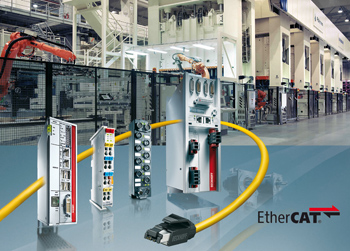
The programmable robots operate so much in processes of production like the daily life, in the regulation of the traffic or the machines of ‘vending', for example. We would know today live without them?
Think that would be very complicated because we have accustomed us to have of anything of fast form as well as to obtain the maximum of information of what can interest us. Without the PLCs and HMIs, would be very costly to obtain so much the data that require like the production to high level and speed.
Nowadays, the new technologies like the mobiles, PDAs, Tabletas, etc. allow us access to databases of production, can give us information of alarms in our process of production, or inform to real time of any problem while we are to distance of our factory.
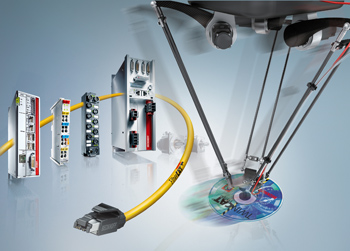
Companies like Beckhoff develop constantly new solutions regarding automation, to answer to the needs of the industrial world. It can comment us some advance regarding his programmable robots?
Since it founded the company in 1980, the success continued of Beckhoff has been the development of products and solutions using technology of control based in PC. A lot of standards in the technology of automation that nowadays consider guaranteeed, were used by Beckhoff in his first moments, and entered with big success in the market. The philosophy of control by PC of Beckhoff, the invention of the terminal of I/Or, TwinCAT and EtherCAT represents an advance in the technology of automation and have been accepted like alternatives of high level with regard to the traditional technology of control. The communication of all our systems so much embedded as PC with EtherCAT, the solution Ethernet to real time, is a vision of future, turning into an available technology for the new generation in the concepts of industrial control.
The programmable robots have allowed big attainments regarding the hygiene in machines. However, the energetic efficiency is winning terrain regarding the exigencias of the users. What can contribute the automatons in this field?
Information. We do not forget that to llevar any change, need data, and the PLCs can cater us of any information to real time of our process. In the energetic appearance occurs exactly the same. It is thus that from Beckhoff try to convince to our customers of the utilisation of the control based in PC to end to be able to have of greater functionalities of all that information that can be notable for us.
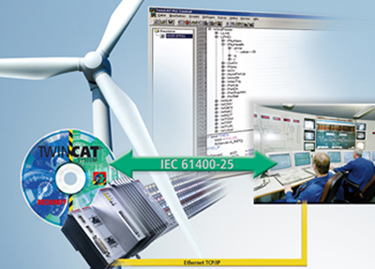
A glimpse to the future. Which paper will play the automatons in the intelligent trucks, with automatic driving and permanent intercommunication?
To my seem, will not be automatons those that will apply to this type of applications since the functionality that requires is a lot of elder that the one who can offer a PLC standard. Beckhoff Already has worked in similar applications of distinct types of vehicles where the architecture applied has based in the control by PC since it contributes a lot of greater speed of execution, greater possibilities of communication and reduction of the cost, time and space of setting and maintenance for the manufacturer.


